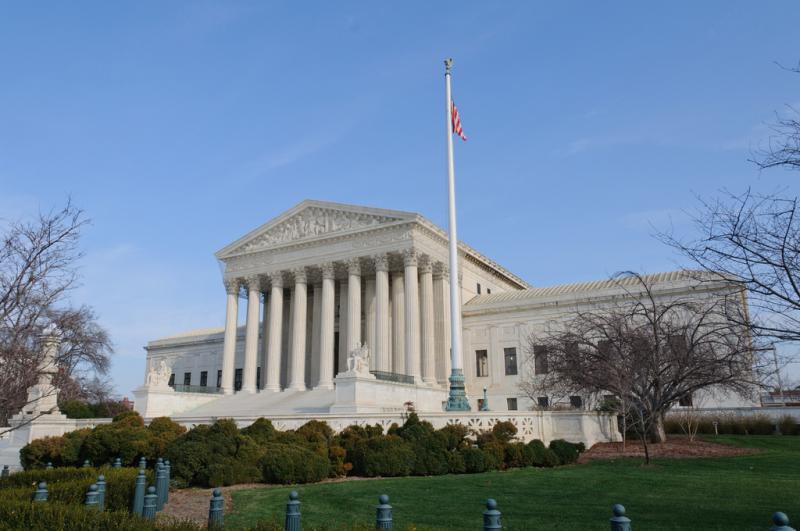
On January 31, conservatives were heartened to hear of Trump’s nomination of Neil Gorsuch to the Supreme Court. Gorsuch accepted his nomination by highlighting the importance of “impartiality and independence, collegiality and courage,” and his political viewpoints are conservative. Gorsuch aptly described the late Justice Antonin Scalia as a “lion of the law,” and previously Gorsuch has opposed requirements in Obamacare that mandate religious health care providers provide contraceptive services.
Neil Gorsuch’s political leanings and impeccable qualifications should come as welcome news to Donald Trump supporters, many of whom were deeply invested in the nomination of a new Supreme Court Justice. Forbes reports “21 percent of voters surveyed by the exit poll consortium of the five networks and the Associated Press on Election Day, said appointments to the Supreme Court were the most important factor in deciding their vote.” (This may mean something to you if you still believe in exit polls.)
Although Supreme Court cases dealing with social issues may be more widely-publicized and politicized than others, restoring balance to the Supreme Court through the selection of a new justice has the potential to affect every sector of American society. Supreme Court Justices serve on the court for life, and it’s impossible to predict exactly what cases could arise during Justice Gorsuch’s career. However, if Neil Gorsuch is confirmed to the Supreme Court in a timely manner, here are four cases that he might rule on that would affect American businesses.
1. Murr v. Wisconsin
The case of Murr v. Wisconsin deals with the ever-important issues of property rights and eminent domain and is scheduled to be argued in front of the Supreme Court in March of this year. In brief, the case arose when the government, without the permission of the plaintiff, combined two of the plaintiff’s lots into one larger parcel that could no longer be developed or subdivided. The plaintiff argues that in this way, the government deprived the Murr family of half of the value of their land without just compensation. The Supreme Court’s decision on this issue could have an enormous impact on property owners, and perhaps even on the real estate market. The Cato Institute finds, “This destabilizes property owners’ reliance interests and discourages property investment. State and local governments across the country have been using the vagueness of Penn Central to facilitate taking private property without just compensation.”
2. TC Heartland LLC v. Kraft Foods
TC Heartland v. Kraft Foods centers on patent rights and the protection of intellectual property. Currently, patent cases can be tried in any district in the country – even those that have nothing to do with a case itself. This leads to a practice called “venue shopping,” and some courts may encourage patent suits to be filed in their district. Citing the Electronic Frontier Foundation, World IP Review reports “’One such court is the Eastern District of Texas, a rural area with almost no manufacturing, research or technology facilities, where more than one-third of all patent cases in the country were filed last year.’” The Supreme Court may decide to rule against such practices – a major development in the world of patent law.
3. Impression Products, Inc. v. Lexmark International, Inc.
The case of Impression Products, Inc. v. Lexmark International, Inc. also deals with patent rights, and deals with an essential question for any patent holder: if you sell a patented product – in the U.S. or abroad – does another company have the right to purchase, repurpose, and resell that product? Impression Products argues, “The first sale of the cartridges, either in the U.S. or abroad, exhausted Lexmark’s U.S. rights to exclude.” The Supreme Court is set to hear arguments for this case in March, and its decision may drastically affect the way American manufacturers do business.
4. House v. Burwell
House v. Burwell is an incredibly relevant case in today’s political climate and a direct challenge to Obamacare. The Washington Post reports, “In House of Representatives v. Burwell, the House challenged the legality of subsidies the Obama administration paid to insurers. Judge Rosemary M. Collyer ruled that the House as an institution had standing and that the payments were made without an appropriation.”
Admittedly, House v. Burwell is currently still in appellate court, and, depending on the decision of that course and the progress that Republicans make in “repealing and replacing Obamacare,” House v. Burwell may never reach the SCOTUS. However, even if this case is halted before it reaches the highest court of the land, the healthcare debate itself is not going away.
More cases regarding the government’s involvement in healthcare are guaranteed to arise in our lifetime, and it is essential that our new Supreme Court justice has a firm understanding of the role of government and a deep-seated respect for the Constitution. Neil Gorsuch, we hope, is just such a man.

